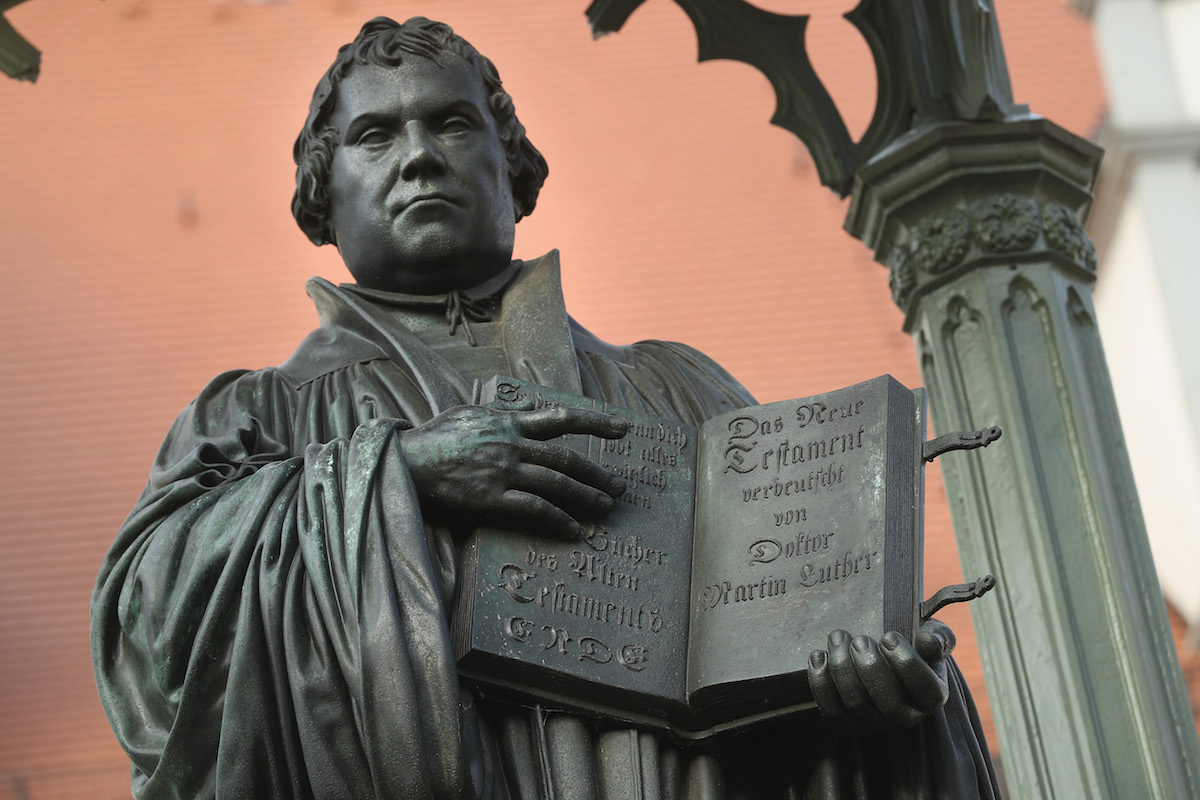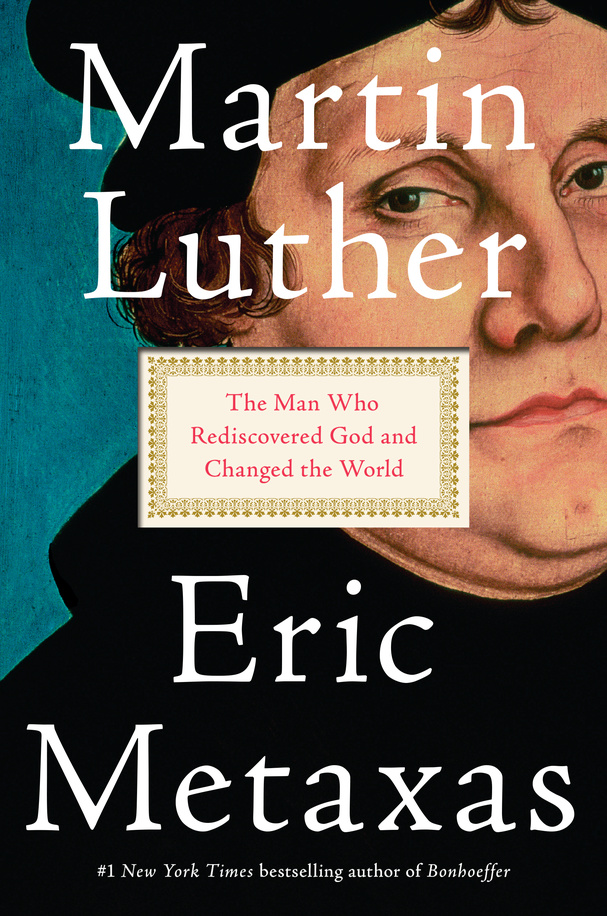
In 1934, an African American pastor from Georgia made the trip of a lifetime, sailing across the Atlantic Ocean, through the gates of Gibraltar, and across the Mediterranean Sea to the Holy Land. After this pilgrimage, he traveled to Berlin, attending an international conference of Baptist pastors. While in Germany, this man — who was named Michael King — became so impressed with what he learned about the reformer Martin Luther that he decided to do something dramatic. He offered the ultimate tribute to the man’s memory by changing his own name to Martin Luther King. His 5-year-old son was also named Michael — and to the son’s dying day his closest relatives would still call him Mike — but not long after the boy’s father changed his own name, he decided to change his son’s name too, and Michael King Jr. became known to the world as Martin Luther King Jr.
This father-and-son name change is just one dramatic measure of the influence of Martin Luther. Luther’s writings and actions so altered the landscape of the modern world that much of what we now take for granted may be traced directly to him, the quirky genius of Wittenberg.
For example, the quintessentially modern idea of the individual — and of one’s personal responsibility before one’s self and God rather than before any institution, whether church or state — was as unthinkable before Luther as is color in a world of black and white; and the similarly modern idea of “the people,” along with the democratic impulse that proceeds from it, was created — or at least given a voice — by Luther too. And the more recent ideas of pluralism, religious liberty, and self- government all entered history through the door that Luther opened to the future in which we now live.
Step Into History: Learn how to experience the 1963 March on Washington in virtual reality
Luther is principally known for two iconic events that precipitated all else. The first, in 1517, was his posting of the 95 Theses on the great wooden doors of the Wittenberg Castle Church, criticizing the then wildly popular practice of indulgence. The second was his unyielding courage at the imperial diet that was held in the city of Worms in 1521. It was there, before the Holy Roman Emperor Charles V and an impressive array of German nobles — and perhaps most important, before the pope’s representative, Thomas Cajetan — that Luther took his implacable stand and made the statement in which he immediately vaulted from the medieval cosmos into the modern. When he made it clear that he feared God’s judgment more than the judgment of the powerful figures in that room, he electrified the world. How dare anyone, much less a mere monk, imply there could be any difference between them? Since time immemorial, such men had spoken for God and for the state. But Luther defied them, humbly but boldly, in a watershed moment in world history. Those of us in the West have lived on the far side of it ever since.
What followed ended up scrambling the landscape of Western culture so dramatically that it’s hardly recognizable from what it was before. Luther was the unwitting harbinger of a new world in which the well-established boundaries of what was acceptable were exploded, never to be restored. Suddenly the individual had not only the freedom and possibility of thinking for himself but the weighty responsibility before God of doing so.
Perhaps the most remarkable aspect of Luther’s story is that it need never have happened. Martin Luther was not a man born — or later inclined — to tilt at papal windmills. In fact, until about 1520 he was as vigorous a champion of the church as anyone who had ever lived. He desired desperately to help Rome elude the fate it ended up experiencing. In fact, in a case of extreme irony — so much so that one might think of Oedipus — he became the very man who brought about everything he had hoped to avoid. As his story illustrates, it was a sublime and ridiculous decoction of forces that created the perfect storm that burst over the European continent, creating what we now call the Reformation and the future. We can only wonder what might have been avoided had the distracted Pope Leo been sensitive to his role in history and taken the German monk’s earnest suggestions to heart. It was Rome’s mystifying inflexibility that drove Luther to bolder and bolder public positions, eventually putting him beyond rapprochement and setting him along a path that will forever be debated either as heretical and ignominious or as orthodox and glorious. But for good and for ill, Martin Luther was the midwife of the irrevocably divided world in which we now live.

Excerpted from MARTIN LUTHER: The Man Who Rediscovered God and Changed the World by Eric Metaxas, published on Oct. 3, 2017 by Viking, an imprint of Penguin Random House LLC. Copyright © Eric Metaxas, 2017.
More Must-Reads from TIME
- How Donald Trump Won
- The Best Inventions of 2024
- Why Sleep Is the Key to Living Longer
- Robert Zemeckis Just Wants to Move You
- How to Break 8 Toxic Communication Habits
- Nicola Coughlan Bet on Herself—And Won
- Why Vinegar Is So Good for You
- Meet TIME's Newest Class of Next Generation Leaders
Contact us at letters@time.com